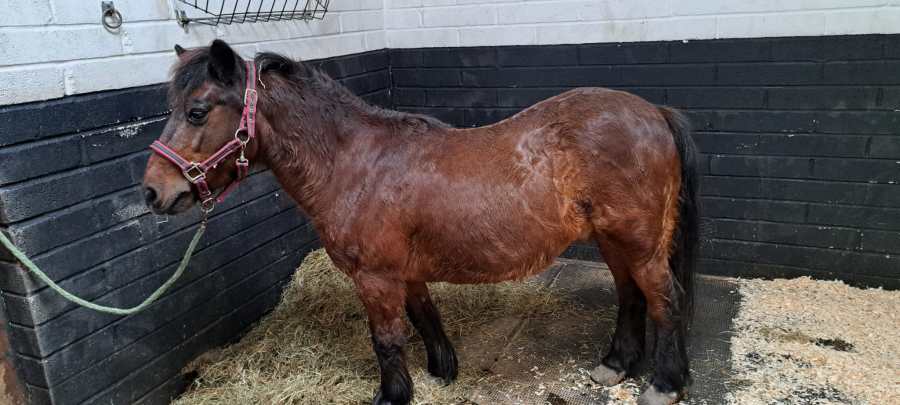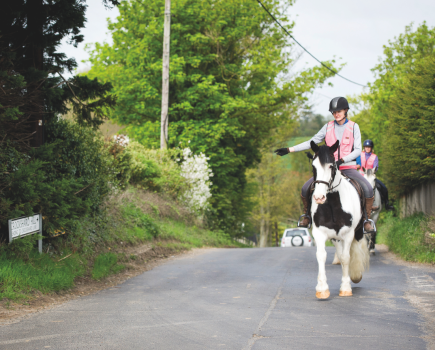The tragic story of a veteran pony abandoned with a long list of veterinary issues has been shared by an equine charity to highlight a growing crisis in the UK.
Horses and Ponies Protection Association (HAPPA) recently took in Spider after he was found in a poor condition, abandoned on private land. When inspectors attended the scene, they scanned the pony for a microchip, but none was found and no owner came forward.
Spider was transported to HAPPA’s Shores Hey Farm for a veterinary evaluation and it was found he had a long list of health issues including advanced Cushing’s disease, laminitis, extreme lameness, COPD and asthma, and a thickening in his right eye that threatened total vision loss.
It soon became evident that Spider was beyond recovery and it was decided the kindest option was to put him to sleep.
“From an equine welfare standpoint, Spider’s case was one of the most complex and heart-wrenching we have encountered,” said Amanda Berry, Head of Equine Operations at HAPPA. “Every time we believed we might
stabilise him, new complications emerged. But the guiding principle for us is always, we do what is best for the horse.
“In Spider’s final days, prolonging life would have meant prolonging pain. As difficult as it was, euthanasia was the only humane option.”
Abandoned horses on the rise
Spider’s abandonment is not an isolated case and across the UK, equine welfare charities are facing increasing demands on their services.
HAPPA reports a 33% increase in equines seized from owners unable to cope, with around 40% of those involving abandonment, while World Horse Welfare says that more than 6,000 horses in England and Wales are currently assessed to be at risk of neglect or suffering.
The report Britain’s Horse Problem, published by a coalition of leading equine charities, warns that despite changes to legislation, such as fly-grazing laws and equine ID, the system remains broken and rescue charities are still operating in crisis mode.
Without intervention, they warn the crisis will deepen, stretching the limited capacity of rescue and rehabilitation charities even further.
The report states that enforcement, education and stronger regulation are key to change.
‘Systematic failure’
“Charities like ours exist to step in when owners fail or encounter crisis, but we are not miracle workers,” said Sarah Arthur, CEO at HAPPA. “Spider’s story is a painful reminder that abandonment is not a random tragedy, it is often the outcome of systemic failure.
“Under-resourced owners, weak oversight and a lack of accountability. While we grieve his loss, we must also commit ourselves to preventing such tragedies in the future.”
To prevent more tragedies like Spider’s, HAPPA is calling for stronger enforcement and regulation where local authorities are empowered and resourced to implement equine welfare laws fully.
They are also rallying for increased public awareness and support through donations, sponsorships, volunteering and public advocacy, as well as intervention before crisis, as early help can prevent a crisis at a later point.








